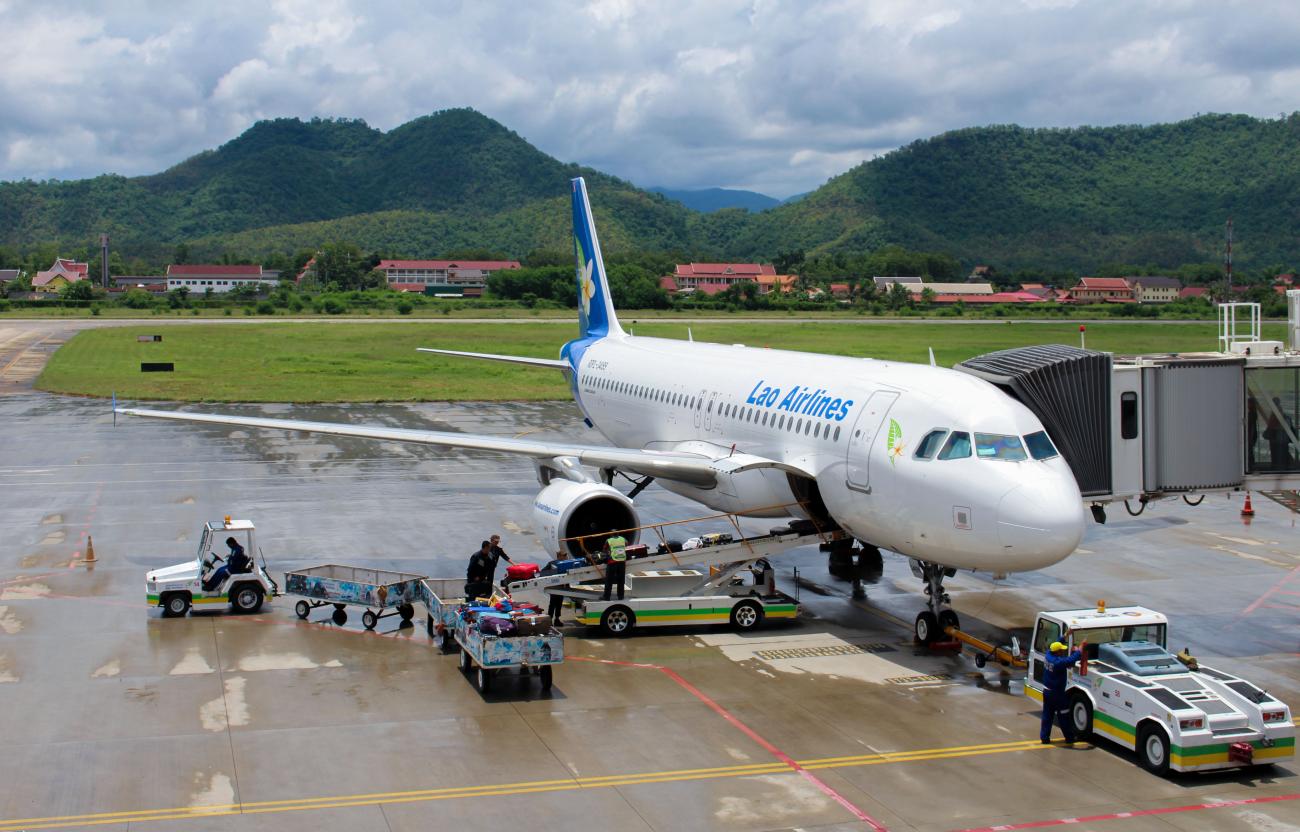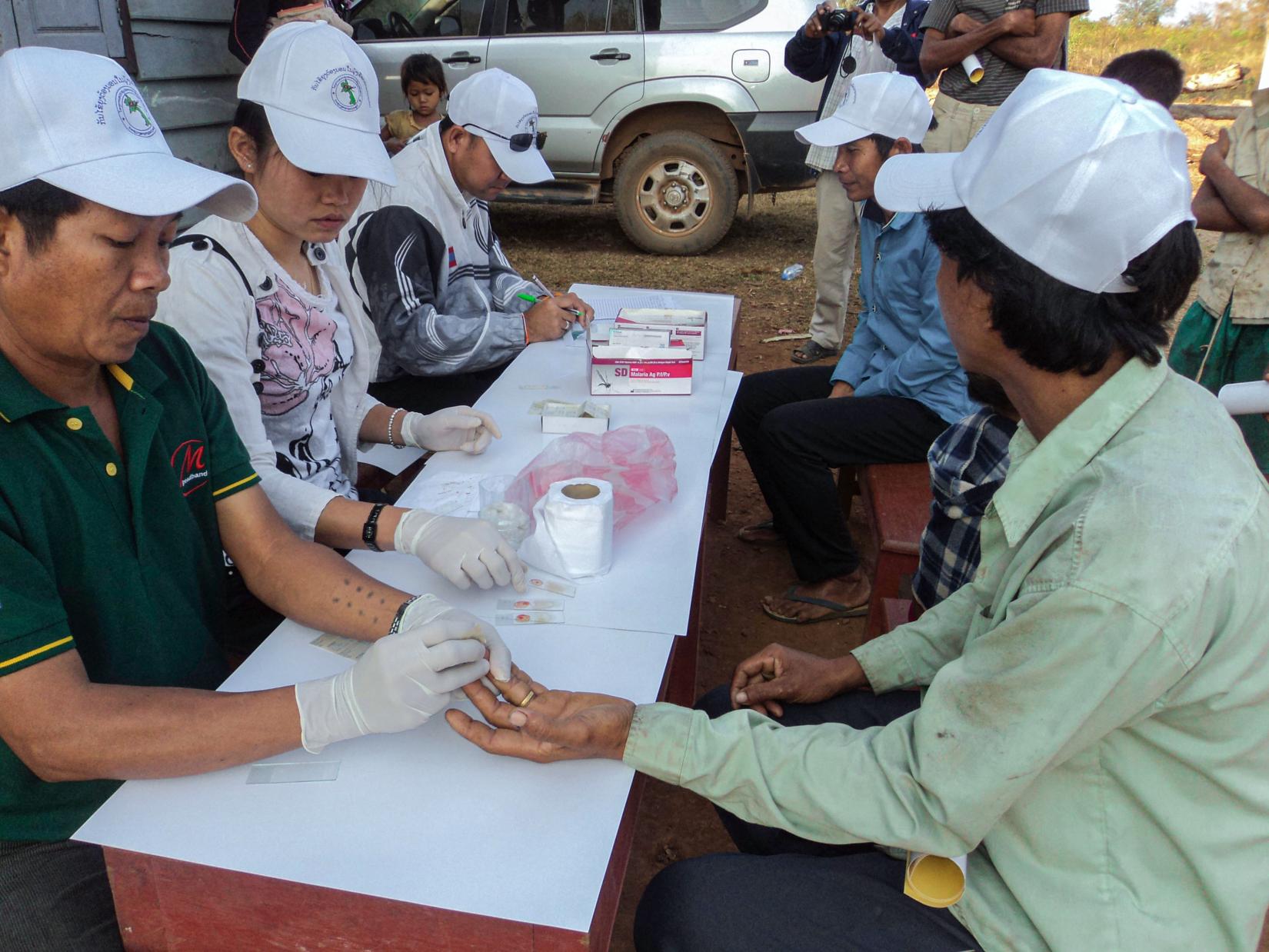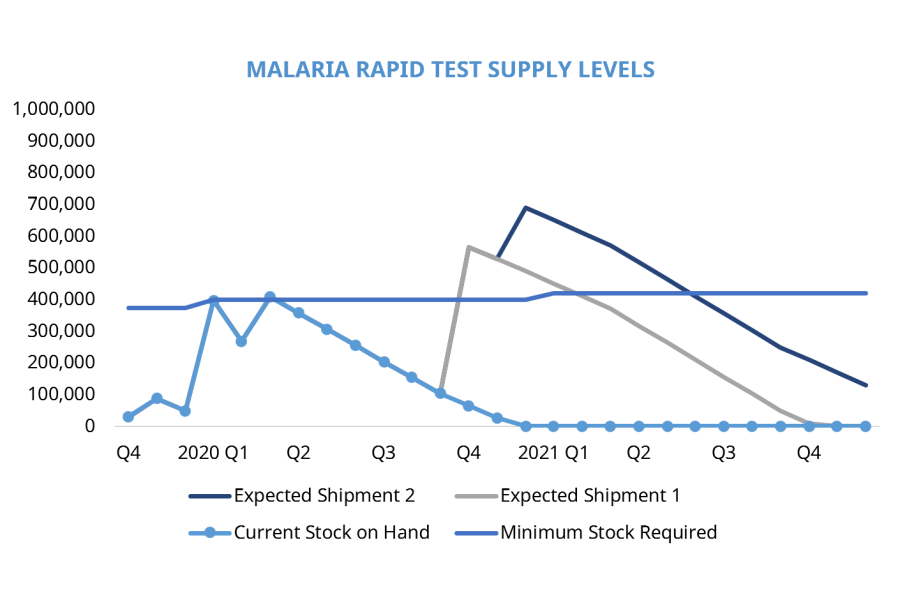Together, getting Lao PDR ready for the malaria season amidst COVID-19

How do you continue to fight malaria – given you are already fighting COVID-19 and nothing works as before?
While the pandemic has put many countries on hold, nature doesn’t necessarily offer the same courtesy in waiting for society to adjust. In mid-April, Lao PDR welcomed the Lao New Year, Pi Mai – this time under #PiMaiAtHome motto, with 19 confirmed COVID-19 cases in the country. This day marks the hottest time of the year, a sign that the dry season will soon yield to the rainy one, blessing crops with long-awaited rains – and bringing the annual spike of malaria and dengue cases. This year, these seasonal events will all take place amidst the COVID-19 pandemic.
Last year saw more than 6,600 malaria cases in Lao PDR, with no deaths – another step forward in reducing the incidence rate, progressing towards the country’s strategy to eliminate malaria by 2030. Yet the progress is fragile, as proven by an upsurge of more than 50,000 malaria cases in 2014. In addition, the threat of drug-resistant malaria strains is increasing in Lao PDR and other countries in the Mekong delta and might put millions of people at higher risk of death, if spread to other continents. Continuing to make progress depends heavily on the availability of early testing and treatment.
This, together with outbreaks of other diseases, floods and droughts, makes countries like Lao PDR especially vulnerable to the COVID-19 outbreak.
“Major emergencies have the potential to overwhelm even the best resourced health system. In low and middle-income countries such as Lao PDR we need to be very careful how we manage the capacity of the health system. Even as the health system is responding to COVID-19, a certain amount of its capacity needs to be reserved for other diseases. Malaria is a case in point. It is essential that we continue to rapidly identify and treat people who get malaria”, - said Dr. Mark Jacobs, World Health Organization (WHO) Representative in Lao PDR.
Domino effect
As a sparsely populated, land connected developing country, Lao PDR’s capacity to fight malaria and other diseases depends on its ability to import vital health products and to cooperate with the international community. Many medical supplies, including malaria test kits, and life-saving drugs, require frequent shipments due to their short shelf life.
To address such challenges, the Global Fund to Fight AIDS, Tuberculosis and Malaria was established in 2002. Since its creation, deaths in countries where the Global Fund invests, have dropped by 46 per cent.
The Global Fund is financing the Regional Artemisinin-resistance Initiative (RAI) grant which has been covering Lao PDR since 2014. The program supports increased malaria service coverage for at-risk populations, strengthening of case management and surveillance. At the current stage, it also aims to accelerate the elimination of P. falciparum malaria by 2020. The grant is implemented through the United Nations Office of Project Services (UNOPS), as the Regional Principal Recipient, in close collaboration with the Ministry of Health of Lao PDR, WHO, CHAI, civil society organizations and other partners.
“The financial support from the Global Fund is helping Lao PDR to expand the existing malaria control programme to cover 100% of the population at risk. Testing for malaria is a crucial activity of the national malaria control programme, and any stockout of malaria test kits presents a major risk for an increase in malaria cases. Therefore, timely delivery of this essential health commodity is critical for the control of the malaria burden in Lao PDR,” - stated Dr. Rattanaxay Phetsouvanh, Director General, Department of Communicable Diseases Control of the Ministry of Health.

The latest consignment of malaria testing kits procured by Lao PDR with support from the Global Fund was on its way in April 2020 - right when commercial flights were suspended, and international travel restrictions increased across South East Asia.
As the flights were cancelled, the consignment was trapped in South Korea. The perspective was looking worrisome, with many communities in Lao PDR potentially exposed to increased malaria risks during the upcoming rainy season.
Teamwork changing the game
At this time, the healthcare partners and the United Nations (UN) were alerted to a special Lao Airlines flight planned to repatriate international travelers from Lao PDR - and destined for Seoul. This opportunity was not to be missed.
With the quick action, multiple partners, including the UN agencies (UNOPS and WHO), the Government (Lao Ministry of Health, Ministry of Foreign Affairs and Ministry of Public Works & Transport), development partners (the Embassy of the Republic of Korea in Lao PDR), private sector (Lao Airlines) and NGOs (Clinton Health Access Initiative), worked together coordinated by the UN Resident Coordinators Office to take advantage of the small window available.
Joined efforts were rewarded with the returning flight bringing 2,500 kgs of life-saving malaria testing kits to Lao PDR.
“This collective effort will help Lao PDR get through the coming malaria season in the context of border restrictions. It will also improve the access to malaria testing for the most vulnerable and at-risk populations, living in remote areas, thus aligning with the Lao PDR’s COVID-19 socio-economic response”, - reiterated Ioana Badescu, Program Coordinator for PR-GF, Lao PDR.
The routine stock monitoring by the Lao Ministry of Health shows an estimate of how the supplies will be consumed throughout the season. The highest spike shows the kits arrival in Lao PDR – meaning the current supplies are estimated to be enough to cover needs till the end of the year, when the new shipment is due to arrive:

Leaving No One Behind means working together
“COVID-19 presents new challenges for all of us, some big, some small. We have to find ways to break down these barriers together, and this case of getting the testing kits delivered proves just that. This is a great example of what can be achieved when multiple parties come together to solve a problem,” – highlighted Ms. Sara Sekkenes, the UN Resident Coordinator in Lao PDR.
This case is part of the wider efforts of the UN Country Team to support the essential services in Lao PDR under increased pressure due to the pandemic. In particular, the UN will assist the Lao Government through two projects approved under the United Nations COVID-19 Response and Recovery Fund, with a total budget of US$ 1 million. One of them aims to strengthen provincial health preparedness and point of entry surveillance, while the other focuses on supporting essential health and nutrition services for mothers, newborns, children and adolescents and ensuring access to lifesaving medication for people living with HIV/AIDS.



